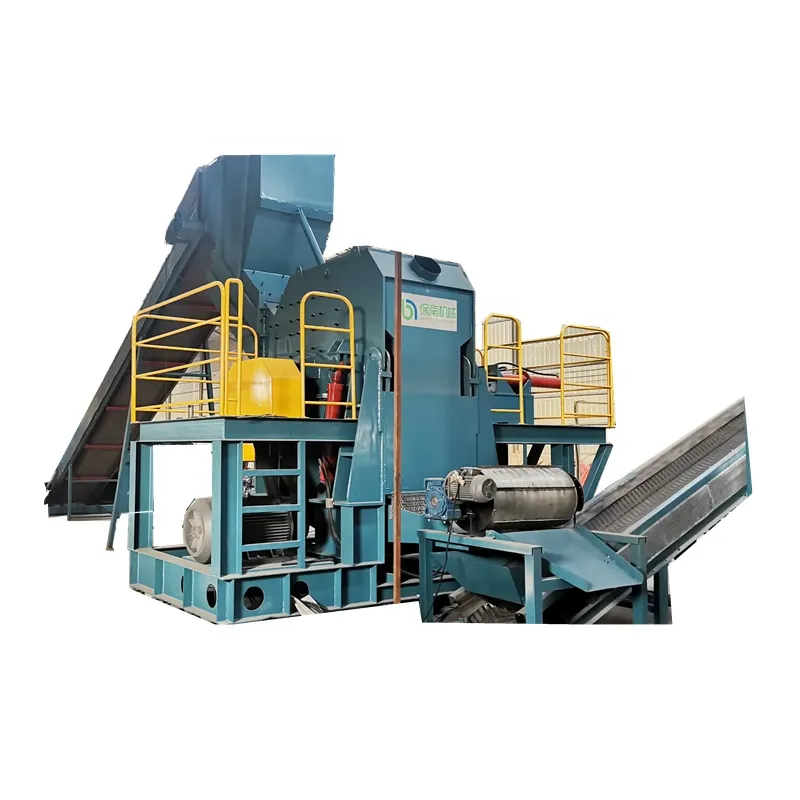

des. . 09, 2024 17:48 Back to list
The Importance of Scrap Metal Recycling Plants
In recent years, the increasing awareness of environmental issues and sustainability has prompted various industries to reconsider their waste management strategies. One of the most significant aspects of this movement is the recycling of scrap metal. Scrap metal recycling plants play a vital role in this process, serving as facilities where discarded metal is processed and repurposed. This article will discuss the importance of scrap metal recycling plants, their operations, and their environmental benefits.
What is Scrap Metal Recycling?
Scrap metal recycling involves the recovery of metal from old and unused products, such as vehicles, appliances, and construction materials. These materials are collected, sorted, and processed in recycling plants to extract valuable metal that can be repurposed into new products. This not only reduces the demand for raw materials but also minimizes the waste sent to landfills.
Operations of Scrap Metal Recycling Plants
Scrap metal recycling plants operate through a series of systematic steps designed to ensure maximum efficiency and safety. The process usually begins with the collection of scrap metal, which can be sourced from various places such as industrial sites, household waste, and demolition projects. Once collected, the metals are transported to the recycling plant, where they undergo sorting.
Sorting is a critical part of the recycling process. Different types of metals have varying properties, and their value and recycling processes are not the same. Plants typically segregate ferrous metals, which contain iron (like steel), from non-ferrous metals (like aluminum, copper, and brass). Advanced machinery, such as magnets and conveyor belts, aids in this sorting process.
After sorting, the scrap metal is cleaned to remove contaminants such as plastics, rubber, and oils. This is crucial because contaminated materials can weaken the quality of the recycled metal. Once cleaned, the metals are shredded into smaller pieces, making it easier to melt and reshape them.

The next stage involves melting the metal in large furnaces at high temperatures. This molten metal is then poured into molds to create ingots or other forms that can be easily transported and sold to manufacturers. The entire process is carefully monitored to ensure safety and efficiency, and measures are taken to minimize energy consumption.
Environmental Benefits
The environmental impact of scrap metal recycling plants cannot be overstated. One of the most significant benefits is the conservation of natural resources. When metal is recycled, it reduces the need for mining and extraction of new raw materials. Mining is an energy-intensive process that often leads to habitat destruction and pollution. By recycling scrap metal, we can help preserve the environment and minimize the ecological footprint of metal production.
Moreover, recycling scrap metal significantly reduces greenhouse gas emissions. The production of new metal from raw materials generates a considerable amount of emissions, whereas recycling typically uses less energy and results in fewer pollutants. According to estimates, recycling one ton of aluminum can save up to 95% of the energy required to produce the same amount from bauxite ore.
Additionally, scrap metal recycling contributes to the local economy. By establishing recycling plants, communities can create job opportunities, ranging from collection and sorting to processing and distribution. This not only fosters economic growth but also promotes a culture of sustainability within the community.
Conclusion
Scrap metal recycling plants are critical to promoting environmental sustainability and conserving resources. Through efficient operations and advanced technology, these facilities ensure that valuable metals are recovered and transformed into new products. As the world continues to grapple with the challenges of waste management and environmental protection, the role of scrap metal recycling plants will only become more prominent. By supporting these initiatives, individuals and businesses can contribute to a more sustainable future while reaping the economic benefits of recycling.
Latest news
Troubleshooting Common Eddy Separator Problems
NewsJul.04,2025
The Role of Metal Recycling Plants in Circular Economy
NewsJul.04,2025
The Impact of Recycling Line Pickers on Waste Management Costs
NewsJul.04,2025
Safety Features Every Metal Shredder Should Have
NewsJul.04,2025
How Industrial Shredders Improve Waste Management Systems
NewsJul.04,2025
How Cable Granulators Contribute to Sustainable Recycling
NewsJul.04,2025